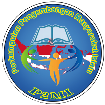Focus and Scope
Jurnal Empower : Jurnal Pengembangan Masyarakat Islam is an open access and peer-reviewed journal of the Muslim Society Development. The goal of this journal is community development in various fields of life especially in rural sociology, development sociology, Corporate Social Responsibility (CSR), social welfare, social demography, community development management, community development in disaster management, community education, communication development, creative economy, and gender. This journal is publishing original research articles and all papers are peer-reviewed by at least two reviewers.
Section Policies
Articles
Peer Review Process
Editor in Chief will assign the manuscript to Managing Editor for further handling. The Managing Editor will request at least two scientists to review the research article manuscript. All manuscripts are subject to Double-blind peer-review, both the reviewer and author identities are concealed from the reviewers, and vice versa, throughout the review process to meet standards of academic excellence.
Detailed information about the flow for the manuscript submission (author) to the acceptance by the editor is shown in the following figure.

In short, the steps are:
1. Manuscript Submission (by author) (route 1)
2. Manuscript Check and Selection (by manager and editors) (route 2). Editors have a right to directly accept, reject, or review. Prior to further processing steps, a plagiarism check using Turnitin is applied for each manuscript.
3. Manuscript Reviewing Process (by two reviewers) (route 3-4)
4. Notification of Manuscript Acceptance, Revision, or Rejection (by editor to author based on reviewers comments) (route 5)
5. Paper Revision (by author)
6. Revision Submission based on Reviewer Suggestion (by author) with the similar flow to point number 1. (route 1)
7. If the reviewer seems to be satisfied with revision, notification for acceptance (by editor). (route 6)
8. Galley proof and publishing process (route 7 and 8)
The steps point number 1 to 5 are considered as 2 rounds of the peer-reviewing process (see the grey area in the figure). The editor or editorial board considers the feedback provided by the peer reviewers and arrives at a decision. The following are the most common decisions:
Accepted, as it is. The journal will publish the paper in its original form;
Accepted by Minor Revisions, the journal will publish the paper and asks the author to make small corrections (let authors revised with stipulated time);
Accepted by Major Revisions, the journal will publish the paper provided the authors make the changes suggested by the reviewers and/or editors (let authors revised with stipulated time);
Resubmit (conditional rejection), the journal is willing to reconsider the paper in another round of decision making after the authors make major changes;
Rejected (outright rejection), the journal will not publish the paper or reconsider it even if the authors make major revisions.
Open Access Policy
This journal provides immediate open access to its content on the principle that making research freely available to the public supports a greater global exchange of knowledge.
 Empower : Jurnal Pengembangan Masyarakat Islam
Empower : Jurnal Pengembangan Masyarakat Islam
















